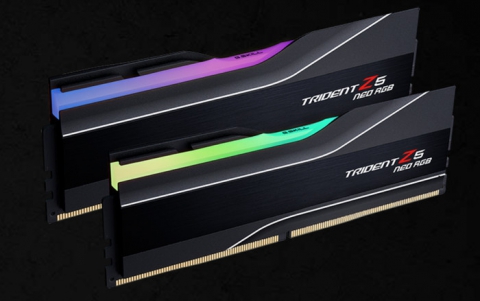
Five giants in technology unite to deter file sharing
The technology and entertainment industries have long been at odds over the best way to secure intellectual property rights as digital technology advances. Now, five of what industry executives say are the world's most powerful computer, cellphone and electronics companies are planning a new system for protecting digital music, video and software from illicit file sharing that they hope will at least narrow that gap.
A global consortium of technology companies is laying the groundwork for a campaign to convince Hollywood and the recording industry that it has finally found an acceptable way not just to limit the copying of music CD's and movie DVD's, but to protect digital content in the fast-growing market for hand-held devices capable of playing music, video clips and computer games while wirelessly connected to the Internet. As these groups prepare to converge on Las Vegas this week for the annual Consumer Electronics Show, the fight over what has come to be known as "digital rights management'' is expected to move to the back burner, at least briefly.
That way everyone can celebrate the long-awaited recovery for the consumer electronics and entertainment businesses that manifested itself in their best holiday buying season since the late 1990's. But the issue will not go away. The consortium - known as Project Hudson and made up of Intel, Nokia, Samsung, Toshiba and Matshushita - plans to announce its new approach in early February to precede the Grammy music awards and the movie industry's Academy Awards ceremony, executives say.
Unlike the system used to protect DVD content, an Internet-based wireless protection plan could permit users of hand-held devices to share movie or music files on a limited basis or permit files to be shared for promotional purposes. Users could also hear a song before deciding whether to buy it. For the entertainment industry, the Internet has often been viewed primarily as a threat because it makes it possible to transmit copies of just about any original work that can be converted to digital code to just about anyone in the world.
But it is increasingly being viewed more positively by some entertainment strategists, who recognize that the Internet's nature as an "always on" medium makes it possible to refine new "digital leashes" to help ensure that copy protection plans are not subverted. Beyond trying to convince Hollywood and the recording industry that new technology can prevent illegal sharing of digital content without unduly restricting use, the consortium's approach represents an effort to control the standards and garner the rewards from developing a successful system.
Project Hudson pits the new group against other copy protection systems being advanced by Sony and Royal Philips Electronics, Apple Computer, RealNetworks and others. But the most important target is probably Microsoft. "They would say they are anti-Microsoft forces," a recording industry executive close to the companies said. "The alternative is to sign up with Redmond." Microsoft, based in Redmond, Wash., is promoting its own plan, known as the Windows Media Rights Manager. But it has been held back, in part, by a legal challenge over infringing on software patents belonging to a smaller American company, Intertrust, which was acquired in late 2002 by Sony and Philips.
Fears in Hollywood and the recording industry over Microsoft's potential control had also stalled the software maker's thrust into the world of digital media. But those fears have lessened lately, in part because of the emergence of competing technologies from Apple, RealNetworks, Roxio and others. Digital content providers are increasingly finding ways to use some of Microsoft's technology without giving up control of their content. "There had been a general fear that Microsoft would own the entire security stack," said William Randolph Hearst III, a partner at Kleiner Perkins Caufield & Byers, the prominent Silicon Valley venture capital firm in Menlo Park, Calif. But companies are starting to tell Microsoft that they are willing to use only part of its software protection technologies, he said.
Another new consortium of companies is engaged in an effort to create a set of standards that will make it possible to universally distribute digital content across different platforms and technologies. That group, known as the Content Reference Forum and backed by Microsoft, Nippon Telegraph and Telephone, Universal Music Group, VeriSign and others, announced its effort last month. The group cites an example of a personal computer user who wishes to share a digital video file with a friend. Instead of sending the file directly, the file owner would first send a "content reference," a digital pointer that permits the file to be downloaded tailored to the receiver's own country as well as the specific computer or other playback device. If the file needed to be purchased, the system would perform the commercial transaction before sending the file.
The interest in new copy protection approaches has also been spurred by Apple's successful iTunes music store, which has shown that consumers are willing to put up with digital copy protection plans that do not seriously interfere with their ability to enjoy entertainment products easily when and wherever they want and, within limits, share what they buy.
Sony, with its Walkman line, was once the leading force in the field of portable electronics, but it has lost a lot of ground by not keeping up with innovations from others, particularly Apple's increasingly popular iPod digital music player. To help itself get back in the game, Sony, which controls its own digital content and technology standards, is also expected to introduce a smaller audio CD standard.
Other consumer electronics companies consider the potential popularity of the format a threat, said Richard Doherty, an industry consultant who is president of Envisioneering of Seaford, N.Y. After years of separate development of various hand-held digital devices, industry executives expect music and video players, cellphones, personal digital assistants and hand-held video game players to increasingly converge on common portable platforms. Moreover, such devices will have data networking capabilities that rival personal computers connected to the Internet via high-speed cable modems and DSL phone lines. Sony has a great deal riding on its new hand-held player. Ken Kutaragi, the Sony executive who created the company's highly successful PlayStation business, has referred to it as a "Walkman for the 21st century.'' He said the Japanese electronics company was going to great lengths to create strong data protection plans for what it is now calling the PSP after facing extensive software piracy of videogame titles designed for its first generation PlayStation.
Balancing the proliferation of competing digital information protection plans is a growing realization that the industry needs common standards. That failure is hampering the growth of digital technologies, said Leonardo Chiariglione, an Italian electrical engineer who founded the group that developed the original MP3 digital audio compression standard widely used to play music on computers and share it across networks.
That way everyone can celebrate the long-awaited recovery for the consumer electronics and entertainment businesses that manifested itself in their best holiday buying season since the late 1990's. But the issue will not go away. The consortium - known as Project Hudson and made up of Intel, Nokia, Samsung, Toshiba and Matshushita - plans to announce its new approach in early February to precede the Grammy music awards and the movie industry's Academy Awards ceremony, executives say.
Unlike the system used to protect DVD content, an Internet-based wireless protection plan could permit users of hand-held devices to share movie or music files on a limited basis or permit files to be shared for promotional purposes. Users could also hear a song before deciding whether to buy it. For the entertainment industry, the Internet has often been viewed primarily as a threat because it makes it possible to transmit copies of just about any original work that can be converted to digital code to just about anyone in the world.
But it is increasingly being viewed more positively by some entertainment strategists, who recognize that the Internet's nature as an "always on" medium makes it possible to refine new "digital leashes" to help ensure that copy protection plans are not subverted. Beyond trying to convince Hollywood and the recording industry that new technology can prevent illegal sharing of digital content without unduly restricting use, the consortium's approach represents an effort to control the standards and garner the rewards from developing a successful system.
Project Hudson pits the new group against other copy protection systems being advanced by Sony and Royal Philips Electronics, Apple Computer, RealNetworks and others. But the most important target is probably Microsoft. "They would say they are anti-Microsoft forces," a recording industry executive close to the companies said. "The alternative is to sign up with Redmond." Microsoft, based in Redmond, Wash., is promoting its own plan, known as the Windows Media Rights Manager. But it has been held back, in part, by a legal challenge over infringing on software patents belonging to a smaller American company, Intertrust, which was acquired in late 2002 by Sony and Philips.
Fears in Hollywood and the recording industry over Microsoft's potential control had also stalled the software maker's thrust into the world of digital media. But those fears have lessened lately, in part because of the emergence of competing technologies from Apple, RealNetworks, Roxio and others. Digital content providers are increasingly finding ways to use some of Microsoft's technology without giving up control of their content. "There had been a general fear that Microsoft would own the entire security stack," said William Randolph Hearst III, a partner at Kleiner Perkins Caufield & Byers, the prominent Silicon Valley venture capital firm in Menlo Park, Calif. But companies are starting to tell Microsoft that they are willing to use only part of its software protection technologies, he said.
Another new consortium of companies is engaged in an effort to create a set of standards that will make it possible to universally distribute digital content across different platforms and technologies. That group, known as the Content Reference Forum and backed by Microsoft, Nippon Telegraph and Telephone, Universal Music Group, VeriSign and others, announced its effort last month. The group cites an example of a personal computer user who wishes to share a digital video file with a friend. Instead of sending the file directly, the file owner would first send a "content reference," a digital pointer that permits the file to be downloaded tailored to the receiver's own country as well as the specific computer or other playback device. If the file needed to be purchased, the system would perform the commercial transaction before sending the file.
The interest in new copy protection approaches has also been spurred by Apple's successful iTunes music store, which has shown that consumers are willing to put up with digital copy protection plans that do not seriously interfere with their ability to enjoy entertainment products easily when and wherever they want and, within limits, share what they buy.
Sony, with its Walkman line, was once the leading force in the field of portable electronics, but it has lost a lot of ground by not keeping up with innovations from others, particularly Apple's increasingly popular iPod digital music player. To help itself get back in the game, Sony, which controls its own digital content and technology standards, is also expected to introduce a smaller audio CD standard.
Other consumer electronics companies consider the potential popularity of the format a threat, said Richard Doherty, an industry consultant who is president of Envisioneering of Seaford, N.Y. After years of separate development of various hand-held digital devices, industry executives expect music and video players, cellphones, personal digital assistants and hand-held video game players to increasingly converge on common portable platforms. Moreover, such devices will have data networking capabilities that rival personal computers connected to the Internet via high-speed cable modems and DSL phone lines. Sony has a great deal riding on its new hand-held player. Ken Kutaragi, the Sony executive who created the company's highly successful PlayStation business, has referred to it as a "Walkman for the 21st century.'' He said the Japanese electronics company was going to great lengths to create strong data protection plans for what it is now calling the PSP after facing extensive software piracy of videogame titles designed for its first generation PlayStation.
Balancing the proliferation of competing digital information protection plans is a growing realization that the industry needs common standards. That failure is hampering the growth of digital technologies, said Leonardo Chiariglione, an Italian electrical engineer who founded the group that developed the original MP3 digital audio compression standard widely used to play music on computers and share it across networks.



















